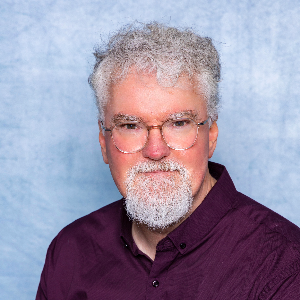Diversity in Disability: Supporting the Twice Exceptional in Library Spaces.
Discussions about disability frequently overlook the diverse experiences and support needs of community members with both intellectual disabilities (ID) and complex communication needs (CCN). While striving for inclusivity is imperative, there’s an equally vital need to establish and maintain specialised spaces that offer the most comprehensive support.
This presentation showcases how learning from such specialised spaces can inform and enhance inclusivity across all sites. Southern Support School is a dedicated special education setting for students from Kindergarten to Year 12. It supports learners in a purpose-built, contemporary, inclusive and communication-rich environment. The school is located in Hobart and is the only special school in southern Tasmania. Students at Southern Support School have severe intellectual disabilities, and many have a range of co-morbidities such as epilepsy, physical support needs, and challenging behaviour. The current student cohort is 100 students, with over 90 students being non-verbal. All students use Augmentative and Alternative Communication (AAC). The school is deeply committed to upholding students’ rights under the globally recognised Communication Bill of Rights and ensures access to quality education, including the essential environmental, sensory, regulation, and communication support needed for students to engage in learning.
In 2022, the school inaugurated its first dedicated physical library space as part of a significant redevelopment effort. The library program, with a strong focus on AAC and literacy, benefits all learners from Kindergarten to Year 12. Its design is tailored to support students with Cortical Vision Impairment (CVI), while the library and literacy team employs video modelling for AAC skill development and creates digital video programs to facilitate AAC use beyond school. The library thoughtfully addresses sensory, vision, and physical requirements and promotes home reading through visual supports and AAC pathways. These innovations have made a profound impact on the students of Southern Support School, leading to improved literacy, communication, and reading outcomes. They serve as lived examples of how specialised support services can unlock potential and enrich the lives of individuals with both intellectual disabilities and complex communication needs.
In the wake of the findings of the “Royal Commission into Violence, Abuse, Neglect and Exploitation of People with Disability,” there is a growing urgency to share the knowledge and experiences of special educators, as well as the voices of those living with both ID and CCN. This sector of disability has often been underrepresented in media discussions. Inspired by the quest for greater inclusion, educators, service providers, librarians, information professionals, and the general public will appreciate the opportunity to better understand and respond to the needs of individuals living with both ID and CCN.

Simon Ellaby
Principal, Southern Support School
Author Bio
Simon Ellaby is Principal of Southern Support School in Hobart, a dedicated special education setting for students with severe intellectual disabilities. He has been Principal for 6 years and worked as a teacher and senior staff at the school prior to assuming the principalship. He was the project lead for a major site redevelopment which included the school’s first purpose-built library. Before moving into teaching, Simon worked for 12 years as a Young Peoples Liaison Officer at Logan City Council Libraries in Queensland, conducting story time sessions, young adult reading groups, and book clubs. A highly skilled and engaging presenter, Simon has expertise in a range of presentation formats from children’s storytelling through to leading professional learning, presenting at conferences, and delivering papers at statewide principal forums. His presentations are high level, inspiring and accessible.

Kim Shaw
Researcher, University of Tasmania
Author Bio
Kim Shaw is a librarian (ALIA) and is currently employed as a researcher at the University of Tasmania. Kim has published and presented at conferences on the use of digital tools in qualitative research. Kim’s recent research interrogates the ongoing effects of colonisation on both archives and research practices as they relate to marginalised groups. Kim has had a long-standing research collaboration with Simon Ellaby, focussing on the literacy and communication needs of children with intellectual disabilities. Their research and practice aim to promote a better understanding of how supportive spaces can be created to accommodate, include, and foster belonging for people with a diverse range of needs and disability in shared public spaces, including libraries.
